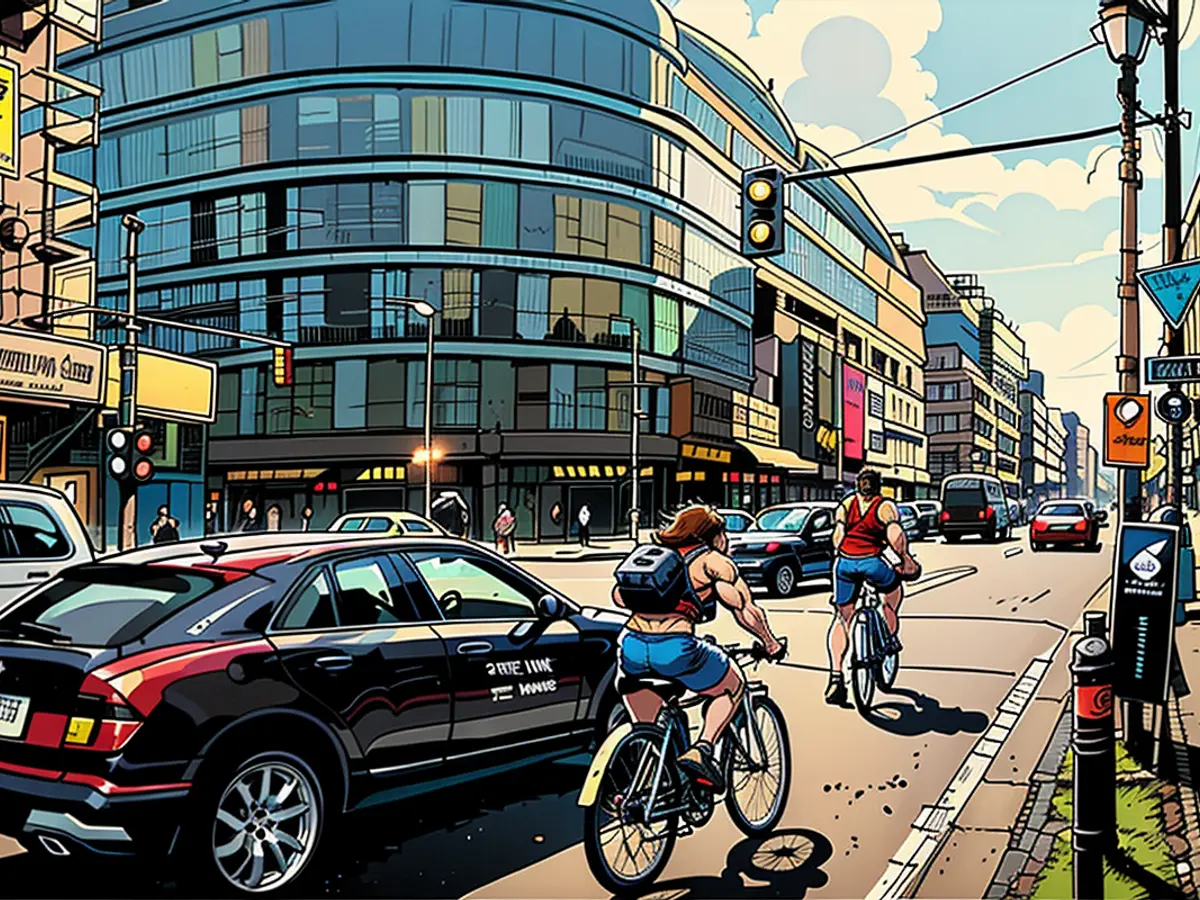Berlin's Galeries Lafayette is disappearing
End of Champagne and Expensive Handbags: The only German location of the French department store Galeries Lafayette in Berlin is closing down. There is heated debate about what will happen next.
The shelves and windows still gleam with the logos of luxury brands, whose products once stood here: Ralph Lauren, Chanel, Lacoste. But one can no longer buy them. The majority of the space in the French department store Galeries Lafayette on Friedrichstraße is already empty, a few days before its closure.
A similar scene is present in the basement, the fine food and grocery department. The expensive Champagnes and wines, the fragrant tea varieties: Almost all gone. Only the fish department still has a well-stocked display. Customers are enjoying the last Dover Sole dishes served at the restaurant tables.
The Galeries Lafayette, which turned 29 years old in its impressive glass building and will close its doors for the last time on July 31, was never just a traditional department store. Berlin's KaDeWe in the Tauentzienstraße in Charlottenburg has been around since almost 120 years. However, a tourist magnet and a central attraction on Friedrichstraße have always been the Galeries.
"The political and emotional relevance is clearly above market relevance," says Nils Busch-Petersen, the managing director of the Berlin-Brandenburg Retail Association. "After all, the Galeries Lafayette was always a special source of French lifestyle and culture in Berlin."
"Changed Consumption Habits"
The department store chain moved into the Jean Nouvel-designed glass palace in February 1996. At that time, it was also a beacon for Berlin, Busch-Petersen emphasizes. "Back then, hardly anyone looked at Berlin, and then the Galeries Lafayette set up its first overseas branch right here."
Hundreds of people stood in line for the opening. It was the first and only foreign branch of the French department store chain in Germany. On 8,000 square meters, exclusive fashion and gourmet dining from the neighboring country attracted customers.
However, like other department store chains, the Galeries faced economic challenges in recent years. The closure was described as "a result of the changing consumption habits in Germany and significant changes in the retail market of the city," the company announced in October 2023 when it announced the end.
Of the once 190 employees, only 150 will still be active on the last working day on July 31, a spokesperson confirmed. An interest reconciliation and social plan has been agreed upon with the labor unions to support the employees as best as possible.
Troubles in France
The department store chain also faced financial difficulties in its home country at times. In addition to the flagship store in Paris, the Galeries Lafayette Haussmann, where the department store chain originated in 1894, there are 56 other Lafayette department stores in France, 30 of which are franchised.
Due to financial problems, 26 of these franchised department stores in medium-sized cities were threatened with closure last year. In March, there was good news for a salvage plan, which released the franchisee and owner of these stores 70% of their millions in debt in exchange for promised investments in the stores.
The mayors of the affected cities were up in arms against the closure plans, as the department stores played a significant role in the cityscape and for local trade.
In France, like in Germany, several clothing chains have filed for insolvency in recent times, with vacant stores being a particular issue in medium-sized towns. The real estate company of Galeries Lafayette, however, is investing in the structure and architecture of department stores in larger cities such as Marseille or Paris. The goal is to turn the outdated department stores into genuine leisure destinations.
Future is open
As for Berlin, however, the future is uncertain. For nearly a year, a proposal has been hotly debated: Senator for Culture Joe Chialo (CDU) wants to move the Berlin Central and State Library (ZLB) to Friedrichstraße. For the institution, which has pressing renovation needs at both its locations in Mitte and Kreuzberg, a new place has been sought for years.
Chialo recently stated that this project is not just "nice to have," but "one of the most important projects for Berlin's future." After all, one is talking about the cultural institution with the most visitors in the city. However, many questions are still completely unclear - for example, how the project will be financed at all. There are no corresponding funds allocated in the budget for 2024/2025.
An initial purchase price offer for the building complex was given by Chialo in 2023 for around 589 million Euros. The sum consists of the land value, building value, and financing. However, in the negotiations with the building owner, they are "definitely below that," Chialo stated - without providing details.
Office spaces are also theoretically possible in the building. Which variant and whether one will prevail is still completely open. "We are pursuing various options, one of which is the use as a library," a spokesperson for the owner company stated only upon request. He did not comment on short-term use of the site.
It is clear: The departure of Lafayette is causing problems for the retailers on Friedrichstraße. The chairwoman of the Dussmann Foundation Board, Catherine von Fürstenberg-Dussmann, stated in May: "Our cultural department store and the Galeries Lafayette were the anchors in this street at the beginning. Soon we will be the only anchor."
The closure of Galeries Lafayette on Friedrichstraße has raised concerns within the German retail economy. Consumption patterns in Germany have shifted, leading to economic challenges for many department stores, including Galeries Lafayette, as mentioned in their announcement of closure in 2023. In the context of this retail shift, the future of retail on Friedrichstraße remains uncertain, particularly after Lafayette's departure.








